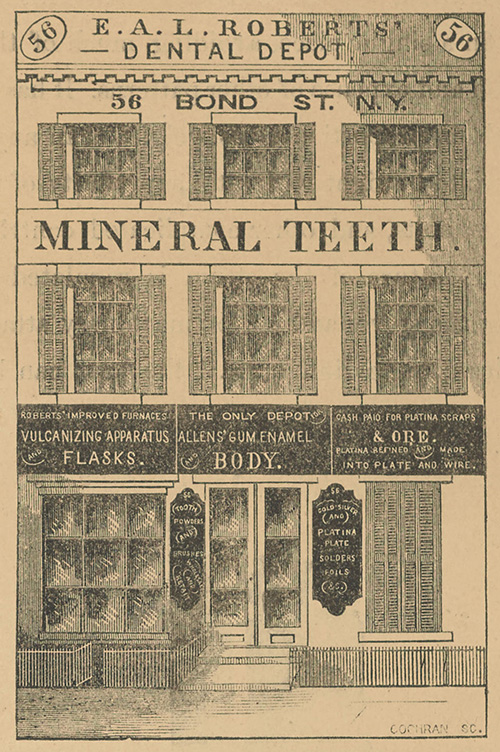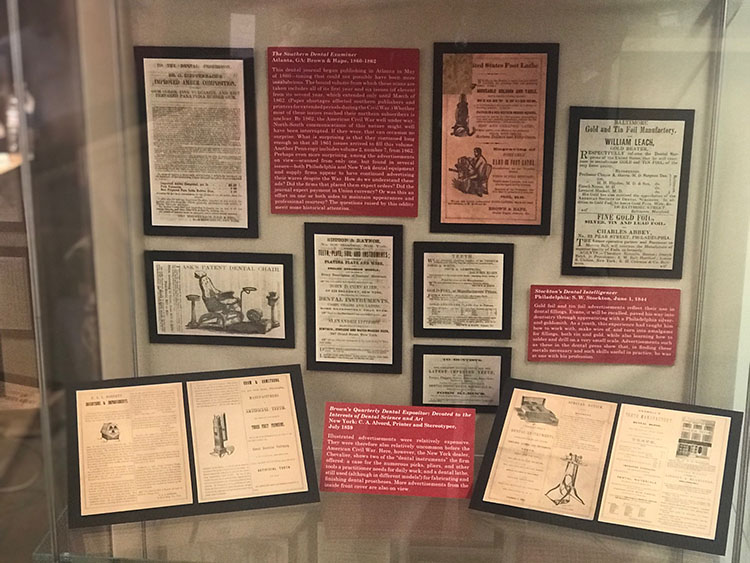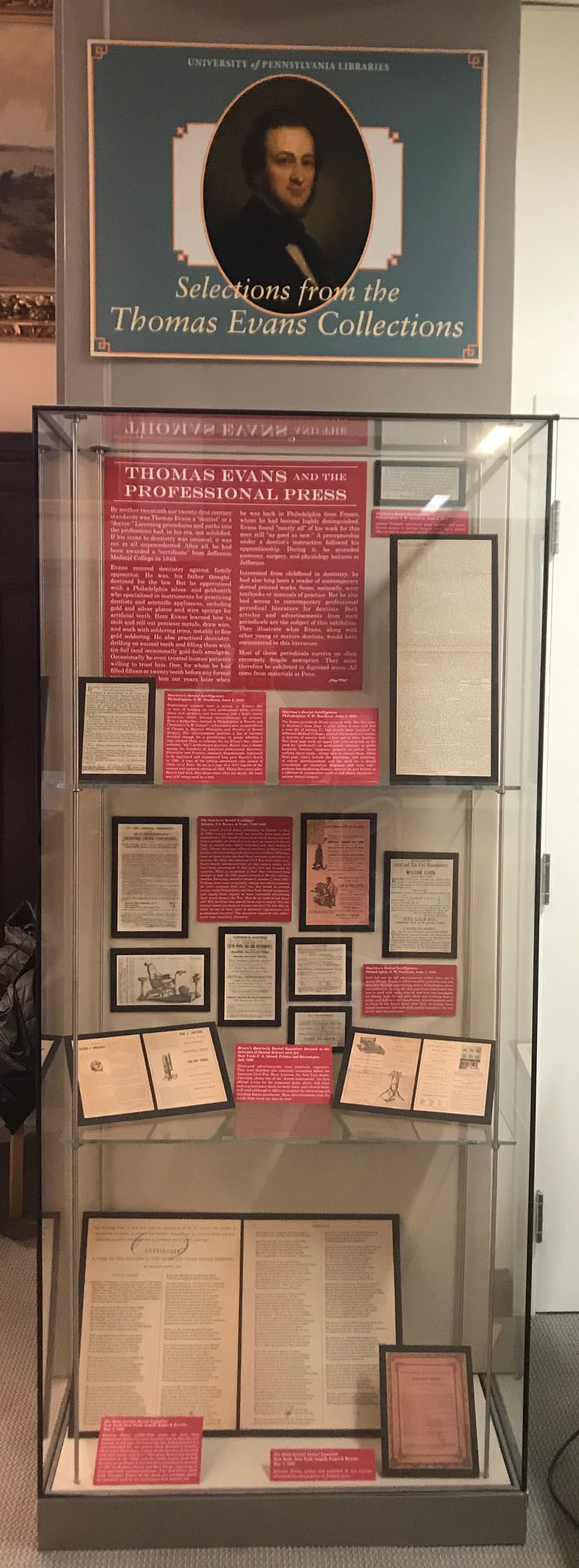Benjamin Franklin: A Champion of Free Press and Free Speech
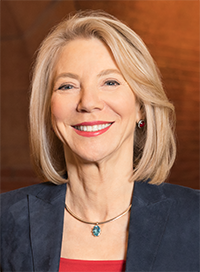 Penn President Amy Gutmann described herself at the Icon Award ceremony as “a moral and political philosopher and an educator, by passion as well as by profession. I have devoted my life’s work to better understanding—and strengthening—the groundwork for both American democracy and education. For any democracy to survive and flourish, no single principle is more fundamental than the free and robust exchange of ideas—especially when we disagree.”
Penn President Amy Gutmann described herself at the Icon Award ceremony as “a moral and political philosopher and an educator, by passion as well as by profession. I have devoted my life’s work to better understanding—and strengthening—the groundwork for both American democracy and education. For any democracy to survive and flourish, no single principle is more fundamental than the free and robust exchange of ideas—especially when we disagree.”
On November 28, Penn President Amy Gutmann was one of five Philadelphia leaders recognized with the 2018 Inquirer Industry Icon Award. In her acceptance of the award, she spoke of the heritage of free expression bequeathed to the University of Pennsylvania by its founder, Benjamin Franklin.
Unhindered press, transformative higher education, engaged civic and business leaders: These are lynchpins for open and free expression in American society. These are the pillars of a free world.
Benjamin Franklin was America’s first great newspaperman and one of the greatest champions of a free press and free speech. “When this support is taken away,” he wrote, “the constitution of a free society is dissolved.”
If you lead the University of Pennsylvania, which Benjamin Franklin founded, open expression is not some abstraction. It is the bedrock of all that we do. Diverse and unexpected ideas are as foundational to Penn as they are to the survival of a free society.
During times when the tendency to treat political adversaries as mortal enemies is rampant, when honest debate and peaceful dissenters are being stifled, and when hate crimes are surging, universities such as Penn have a special obligation. Our fundamental mission is to open things up. I am proud to say that Penn is a place where unexpected ideas are welcome and given a fair chance to stand up to rigorous research and spirited debate.
This is not just a university issue; this is a universal issue. It transcends social divisions and party lines.
Receiving the Icon Award from the Philadelphia Inquirer is a signal honor. It is no less a reminder of how much we all depend upon excellent journalism, honest reporting, and the complete and accurate representation of a story to allow us to succeed at the difficult task of democratic self-government. Every day, you go to work on behalf of free speech and honest and open inquiry. Penn is honored to undertake this essential work by your side.
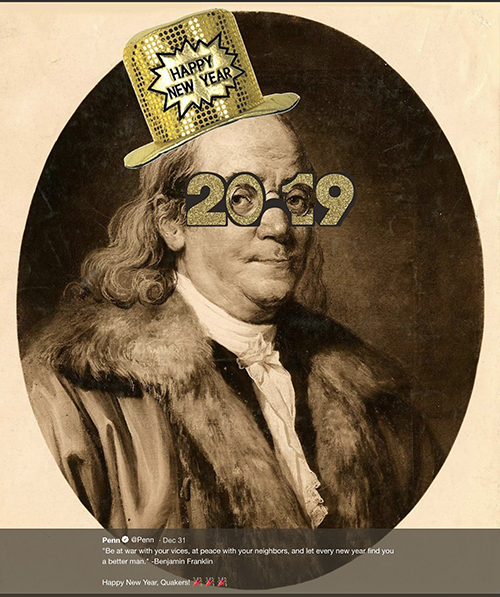 Franklin’s birthday has been celebrated on January 17 for centuries, but he was actually born in Boston on January 6, 1705, before the colonies switched from the Julian calendar to the Gregorian calendar in 1752. Under the Julian system the new year began March 25 not January 1 so anyone born during those months also had to change the year of their birth. He supported the change and dutifully moved his birthday up the 11 days. So his Gregorian year of birth became 1706 instead of 1705. Franklin moved to Philadelphia at the age of 17 and prospered as an entrepreneur and newspaperman.
Franklin’s birthday has been celebrated on January 17 for centuries, but he was actually born in Boston on January 6, 1705, before the colonies switched from the Julian calendar to the Gregorian calendar in 1752. Under the Julian system the new year began March 25 not January 1 so anyone born during those months also had to change the year of their birth. He supported the change and dutifully moved his birthday up the 11 days. So his Gregorian year of birth became 1706 instead of 1705. Franklin moved to Philadelphia at the age of 17 and prospered as an entrepreneur and newspaperman.
Poor Richard’s Almanack
On December 19, 1732, Franklin published his first issue of the periodical book, Poor Richard’s Almanack under the pseudonym Richard Saunders. It was published continuously for 25 years and provided a wide range of information, including calendars, weather predictions, sayings, poems and demographics, as well as recipes, trivia, advice, aphorisms and proverbs about industry and frugality, and even jokes.
According to the Library Company of Philadelphia, only three copies of the 1733 original issue exist. Franklin’s pseudonym is a bit of a riddle in a riddle: Richard Saunders was an English physician and astrologist who wrote under the pen name of Cardanus Rider, which is simply the letters in “Richard Saunders” rearranged. The real Saunders published Rider’s British Merlin. The name Poor Richard was adapted from another British almanac, Poor Robin, which was first published in 1664. The pseudonym Richard Saunders was initially distinct from Franklin, but throughout the years it became linked with Franklin’s character.
It is believed that Richard Saunders’ personality was modeled after Isaaq Bickerstaff Esq, a pseudonym used by Jonathan Swift as part of a hoax to predict the death of almanac writer John Partridge.
The almanac was a best seller in the American colonies printing up to 10,000 copies a year. Its success brought wealth to Benjamin Franklin. Poor Richard’s Almanack was so popular that Napoleon ordered it translated into Italian and later it was also translated into French.
Almanac, the University of Pennsylvania’s journal of record, opinion and news began in November 1954 as a monthly and has been a weekly since spring 1971.
Proposals Relating to the Education of Youth in Pensilvania
Ben Franklin’s 1749 pamphlet on the aims of education, Proposals Relating to the Education of Youth in Pensilvania, led directly to the founding of the Academy of Philadelphia, which has been known since 1791 as the University of Pennsylvania.
In this document, Franklin described his revolutionary and visionary plan to properly educate American youth. He believed in combining “every Thing that is useful, and every Thing that is ornamental.” Franklin spelled out his ideas for a perfect educational institution, addressing buildings, academic life, student health and service to the broader community, among other topics.
As a result of his writings, he was able to recruit 24 prominent citizens as trustees for a new institution of higher education. He persuaded the trustees to acquire George Whitefield’s New Building at Fourth and Arch St. and convert it for educational purposes. The Trustees drafted a Constitution of the Publick [sic] Academy, in the City of Philadelphia in 1749, codifying Franklin’s ideas into a concrete school charter. In 1751, Franklin’s Academy opened at Fourth and Arch Streets, and four years later the Academy was converted to a College with the authority to confer undergraduate and professional degrees.
You can find the full proposal online (Almanac January 24, 2006).
The Pennsylvania Gazette
The Pennsylvania Gazette was founded by Samuel Keimer in 1728 under the name of The Universal Instructor in all Arts and Sciences: and Pennsylvania Gazette. Each copy was published with an insert of Ephraim Chambers’ Cyclopaedia, or Universal Dictionary of Arts and Sciences.
Bemjamin Franklin and his partner Hugh Meredith purchased the Gazette from Keimer on October 2, 1729. They shortened the title to The Pennsylvania Gazette and dropped inclusion of the Cyclopaedia. They improved the paper’s appearance, articles and news, and soon the Gazette, published twice a week, became the most successful newspaper in the colonies.
The Gazette was unusual for the time in that it included essays and letters from readers, many of which were written by Franklin himself under pseudonyms.
Franklin used the Gazette to publish his experiments with electricity and to stress his political views. On May 19, 1754, during the French Indian War, Franklin published the first known American political cartoon known as ”Join, or Die.” In the editorial he tried to emphasize the need of the colonies to join forces with Great Britain to defeat the French and Indians. Ironically, one decade later the same cartoon became the symbol of the Revolutionary War. The cartoon shows a snake cut into eight parts, each one labeled with the initials of each American colony.
As Franklin moved up in his political career so did the profits of his business. By the mid-1730s, the Gazette became the most popular newspaper in the colony. In 1748 Franklin retired from business, and he left printing and editing of the Gazette to his partner David Hall. It ceased publication in 1800, 10 years after Franklin’s death.
The title was resurrected by Penn’s alumni magazine in 1918, a nod to the University’s founder and his publishing roots.
.jpg)
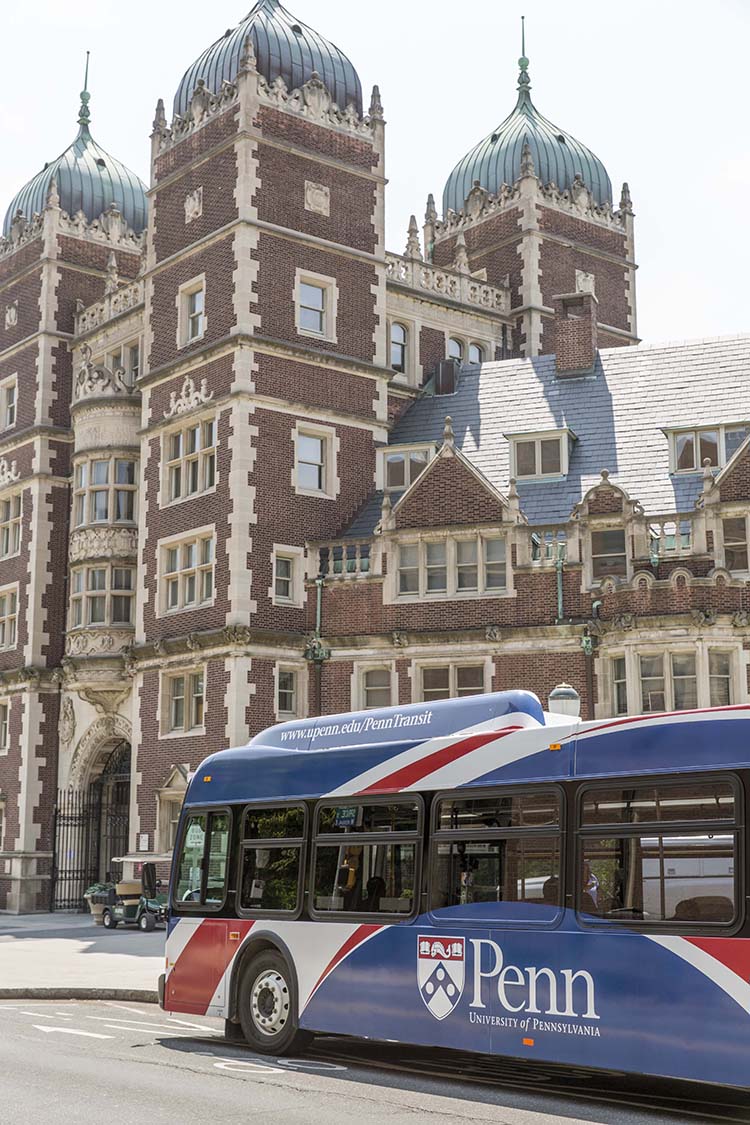
Did you know there are tons of benefits that come with a position at Penn? Listed below are many of Penn perks that are available to faculty and staff members.
Health and Fitness
Health Risk Assessments—Visit https://tinyurl.com/ych3nt49 to access Penn Medicine’s variety of online tools that help you learn about your body and how to manage your health.
Annual Flu Shot—Human Resources sponsors a flu shot for all employees every November. Consistent with the Affordable Care Act, employees do not need to pay up front or seek reimbursement from their insurance companies.
Health Advocate Service—Visit http://www.healthadvocate.com/upenn or call 1 (866) 799-2329 to take advantage of this free service, which helps employees find doctors, expedite appointments, navigate insurance and generally assist with health care.
Annual Wellness Fair—Every April, Human Resources sponsors a wellness fair that offers free screenings, merchandise and information about campus safety, nutrition, dining, women’s health and many other topics.
Flexible Work Options—Penn offers a variety of arrangements such as flextime, flexplace and a compressed work plan that help employees manage their busy schedules. For more information, visit http://tinyurl.com/zo6lptc
Counseling and Referrals—Life is often challenging, and Penn employees receive up to eight free counseling sessions to help with stressful transitions. Visit https://tinyurl.com/ya46q5dy to learn more.
Penn Walking Program—Penn provides plenty of incentives to stay in shape by walking, including a free pedometer, a t-shirt and a tracking booklet. Learn more about this program at https://tinyurl.com/y8ogq6po
Tobacco Cessation Resources—Penn is dedicated to its employees’ well-being, and Penn’s Quit Smoking Program is available to help employees fight this difficult addiction. For information, visit https://tinyurl.com/yct6u8yb
Weight Watchers at Penn—This well-known national program has its own Penn branch! Meetings are held Tuesdays at 12:30 p.m. and Wednesdays at 11 a.m. for a weekly fee. For details, see https://tinyurl.com/y8vbn7hw
Recreation—Penn offers a variety of recreational venues, including Penn Park, Pottruck Health and Fitness Center and Fox Fitness Center. These are available to Penn faculty, staff and students. In addition, several fitness programs such as club sports, personal training and massage therapy can help any member of the Penn community get in shape! Visit https://recreation.upenn.edu/ for fees and information.
StayWell Portal—Penn’s StayWell portal is available at https://penn.staywell.com/ and provides access to many useful health resources. In addition, there is a helpline at 1 (855) 428-6324. This is part of the Be in the Know wellness campaign: https://tinyurl.com/yb6us8fv
Children and Family
Adoption Assistance—Penn can help ease the financial impact of bringing home a new child by reimbursing up to $5,000 for eligible adoption expenses. Visit https://tinyurl.com/ybodbeyn to learn more.
Nursing Mothers Program—This program, which includes a free Breastfeeding Resource Group, can help new mothers make a smoother transition back to work while nursing a newborn. Visit https://tinyurl.com/yd2om9vs
Penn Children’s Center—The Penn Children’s Center provides child care and education for children (ages 3 months to 5 years) with preference given to faculty, staff and students. Visit https://cms.business-services.upenn.edu/childcare/ to learn about this award-winning institution.
Snow Day Child Care—Pre-register now to have your child (ages 12 weeks to 12 years) taken care of when Philadelphia schools close but Penn remains open. For information, visit https://tinyurl.com/y9sfwmym
Backup Care Program—When an emergency strikes, Penn will help you find the right care for your child. Visit https://tinyurl.com/yc2q4rga for more information.
Take Your Children to Work Day—Penn understands the importance of providing children with positive, productive experiences in their formative years. This annual event gives youngsters ages 9-15 years an up-close and personal look at their parent/sponsor’s workplace. Visit https://tinyurl.com/y8bsgcd9 to learn more.
School Strike and Closing Guidance—Penn provides resources to help parents in the event of a school strike or closing. Visit https://tinyurl.com/y8fl5gez to learn more.
Personal Assisted Search—Offered through Care.com, this search can help with a wide range of dependent care challenges, such as finding child care, school-age care, summer camp programs in your community, and/or elder care services to meet your family’s needs and preferences. Visit https://tinyurl.com/y7jlnxah to learn more.
Tuition Benefits for You and Your Family—Faculty and staff members receive 100% of tuition for up to two course units per term at Penn. Spouses, domestic partners and children receive considerable discounts as well. Visit https://www.hr.upenn.edu/PennHR/benefits-pay/tuition to learn more.
Funeral Planning Services—Penn’s life insurance carrier, Aetna, offers Penn employees enrolled in life insurance free funeral planning and funeral-related concierge services through its partnership with Everest. Visit http://tinyurl.com/z33qzzh to learn more.
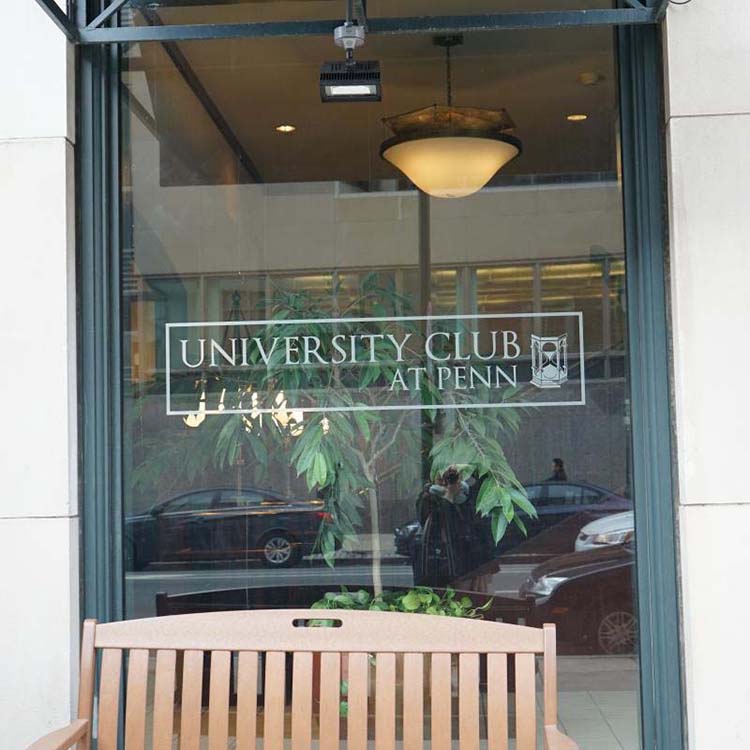
Work and Career
Career Coaching—Employees who have been at Penn for at least a year receive help polishing their résumés, developing their present careers and optimizing mobility. For more information, see https://tinyurl.com/ycrg4qsg
Employee Resource Fair—Held every October, this event, co-sponsored by Human Resources, the PPSA and the WPPSA, spotlights dozens of Penn’s offices and demonstrates the variety of resources available to all Penn employees.
Resolving Workplace Issues—Penn has various resources available to assist staff members in resolving workplace issues or concerns. Visit http://tinyurl.com/j9ke4ar to take advantage of Penn’s programs, procedures and professionals who are available to intervene.
Penn Libraries—Penn Libraries offer a variety of useful services. Penn’s collections include more than seven million books and 34 thousand sound recordings. Online services like Franklin, Ancestry and Safari aid with finding information, and the Weigle Information Commons offer workshops to assist with technology and equipment rental. Several libraries have video and DVD rentals. Search for a title: http://www.library.upenn.edu/collections/videos/
ISC Training—Penn Computing provides computer training courses that can be taken both on Penn’s campus at their training lab, or off campus at several locations in Philadelphia and the suburbs.
Leadership Development—Penn offers four leadership development programs to help develop the management and leadership skills needed to be successful at Penn and beyond. Visit https://tinyurl.com/y9vx7om4 to learn more
Online Courses—Penn employees can take advantage of more than 50,000 free professional training videos offered by Lynda.com at https://www.isc.upenn.edu/lyndacom/ In addition, web-based online classes are available from Coursera at http://www.onlinelearning.upenn.edu/faqs
Safety and Transportation
Help Line—(215) 898-HELP (4357). The HELP Line is a 24-hour-a-day, 7 days a week phone number for members of the Penn community who are seeking time-sensitive help in navigating Penn’s resources for health and wellness. Any member of the Penn community can utilize this service. Calls will be answered by Division of Public Safety professionals trained in mental health referrals by staff from Counseling and Psychological Services (CAPS). Visit https://tinyurl.com/yaozfaf5 for more information.
UPennAlert Emergency Notification System—Registered cell phone numbers receive critical information from University officials in the time of an emergency. To update emergency contact information: http://www.upenn.edu/directories/
Walking Escort Services—(215) 898-WALK (9255) to request a walking escort 24 hours a day, 365 days a year, between 43rd & 30th Streets and Market Street to Baltimore Avenue. Escorts are also available from 10 a.m. until 3 a.m. between 50th & 30th Streets and Spring Garden Street to Woodland Avenue via the University’s partnership with the University City District Ambassador Program.
How to Request a Walking Escort:
- Ask any Public Safety Officer on patrol or inside a building
- Call 215-898-WALK (9255) or 511 (from campus phone)
- Use one of the many building and blue-light phones located on and off Penn’s Campus
Visit https://tinyurl.com/y7r2va2z for information.
Emergency Ride Home—In case of an emergency or if an employee’s regular ride home is not available, a free ride home for commuters is available. Visit https://tinyurl.com/y8fbqv8u
Lockout and Jump-Start Services—Security Services offers free services to anyone with car needs, such as needing a jump start, on campus. Call (215) 573-3333 or 511 from any campus phone.
Self Defense Courses—Penn offers RAD and other self-defense courses for men and women, and private classes and classes for nonbinary affiliates are also available, all free of charge. Information can be found at http://www.publicsafety.upenn.edu/special-services/rad
Loop Through University City (LUCY)—Between 6:10 a.m. and 7 p.m. on weekdays, excluding holidays, this shuttle is available between University City and 30th Street Station. It is free to all PennCard holders. Visit www.universitycity.org for information about routes and schedules.
Parking on Campus—Penn Parking manages 25 parking facilities on Penn’s campus, including garages and lots, that are reserved for faculty and staff. Visit www.upenn.edu/parking to learn more about how to save on parking.
Carpool and Vanpool—Penn offers support to individuals who wish to take advantage of carpooling and vanpooling. Visit: www.upenn.edu/PennTransit
Bike Sharing Stations—Philadelphia’s bike-share system, Indego, has stations on Penn’s campus. For information about Indego, visit www.rideindego.com/
Bike Commuter Expense Reimbursement Program—Full-time benefits-eligible employees who commute to work by bicycle will receive reimbursement for eligible expenses. Visit www.upenn.edu/biking
Penn Transit—Penn’s integrated transit service offers free transportation to and from campus (within specified boundaries) to anyone with a valid PennCard. Visit: www.upenn.edu/PennTransit
Public Transportation—Penn offers discounted options through Commuter Pass Program, PATCO Freedom Pass, New Jersey Transit and SEPTA. Learn more at www.upenn.edu/PennTransit
Discounts and Savings
Penn Home Ownership Services—Penn offers a variety of incentives for home buyers, including a Closing Cost Reduction Program and $7,500 enhanced forgivable loans. For information, visit https://tinyurl.com/y7rnv9fh
Penn Bookstore—The Penn Bookstore offers a 10% discount on many items if PennCard is shown.
Penn Computer Connection—The campus computer retail outlet for Penn faculty, staff and students offers educational discounts on computers, hardware, software, accessories and supplies as well as the opportunity to trade-in your technology to get credit toward a future purchase.
Financial Services—The University of Pennsylvania Federal Credit Union offers a variety of discounts on vacations, cars, coupons and insurance. Visit http://www.uofpfcu.com/default.htm to learn more. In addition, Bank of America offers Penn faculty and staff Visa credit cards. See http://tinyurl.com/hn7ldsq
PNC WorkPlace Banking—PNC offers Penn faculty and staff a complete set of money management tools with exclusive features, benefits and rewards. Visit http://tinyurl.com/j7dc9cv to learn more.
YMCA Discount—Philadelphia Freedom Valley YMCA and Regional Y Alliances offer 10% monthly discounts to all members with valid PennCards. Existing members can sign up for a discount at their home YMCA branch.
GlobalFit—Penn faculty and staff and their families qualify for discounted rates at participating GlobalFit health clubs, including Sweat, Curves, LA Fitness, Nutrisystem and more! Visit https://tinyurl.com/yawcs2xd to learn more.
Personal Purchase Programs—Employees of Penn can get discounts for a variety of products, such as Ford and General Motors vehicles; AT&T, Sprint and Verizon Wireless cellphone plans; Office Depot office supplies; shipping from Amazon, Apple and Dell.
Pet Care Benefits—Penn employees receive a 20% discount on services at the Ryan Veterinary Hospital. To make an appointment, call (215) 746-8387 or visit http://tinyurl.com/z8vpnyt
PennO365—Faculty, staff and students receive a free suite of Microsoft Office 365 software (including Word, Excel, PowerPoint and others), which can be installed on up to five laptops and devices per user, see: https://tinyurl.com/y8ne3rac
PersonalShip—PennKey provides access for any Penn employee to this personal shipping service, which features discounted rates, tracking and several express shipping options. For information, visit www.upenn.edu/personalship
Amazon@Penn—Located in 1920 Commons on campus, Amazon@Penn offers convenient and safe pick-up and returns on Amazon orders.
Dining—With a faculty/staff dining plan, Penn offers a 5% discount at Penn retail dining facilities. Visit www.upenn.edu/dining
University Club—All new faculty and staff a receive free one year membership. Visit www.upenn.edu/universityclub
PennCards—A PennCard entitles its bearer to a number of perks, including free admission to the Morris Arboretum, the Penn Museum and the Institute of Contemporary Art; use of Penn Transit Services; and access to Penn recreational facilities. Any Penn employee can obtain a PennCard for any member of his/her family, who will then share in the benefits! For information, see http://tinyurl.com/jn3sz2a
Travel Reservations—Penn has relationships with several preferred travel vendors, such as Enterprise, World Travel and United, all of which offer discounts to Penn employees. Visit www.upenn.edu/penntravel to take advantage of these discounted rates.
YouDecide—Penn offers the YouDecide program, which features a single-destination portal showcasing consumer products and services. Through this convenient online shopping destination, eligible faculty and staff will find savings at establishments such as restaurants, spas, sports and entertainment venues, car discounts, and popular apparel retailers. There are hundreds of discounts available from local and national brands. Visit https://www.hr.upenn.edu/penn-community/deals-discounts for information.
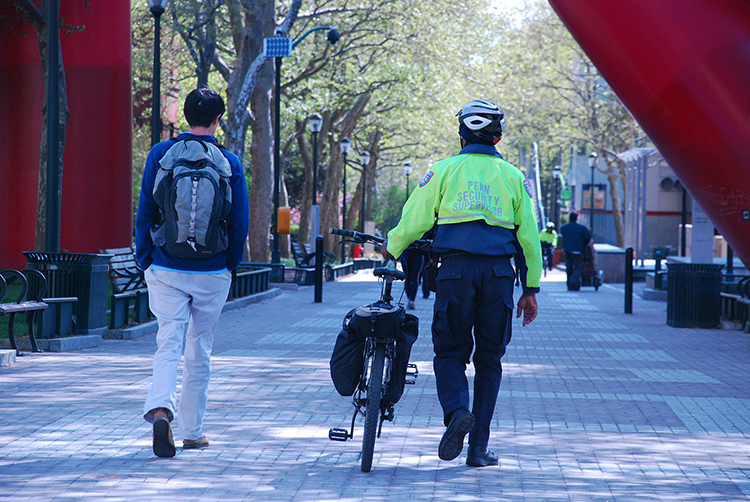
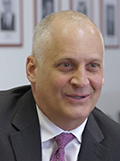 Provost Wendell Pritchett and Vice Provost for University Life Valarie Swain-Cade McCoullum are pleased to announce the appointment of Gregory Eells as executive director of the University of Pennsylvania’s Counseling and Psychological Services (CAPS), beginning this March.
Provost Wendell Pritchett and Vice Provost for University Life Valarie Swain-Cade McCoullum are pleased to announce the appointment of Gregory Eells as executive director of the University of Pennsylvania’s Counseling and Psychological Services (CAPS), beginning this March.
 Provost Wendell Pritchett and Vice Provost for Education Beth Winkelstein are pleased to announce the appointment of Jane Coyle Morris as executive director of the University of Pennsylvania’s Center for Undergraduate Research and Fellowships (CURF), effective June 17.
Provost Wendell Pritchett and Vice Provost for Education Beth Winkelstein are pleased to announce the appointment of Jane Coyle Morris as executive director of the University of Pennsylvania’s Center for Undergraduate Research and Fellowships (CURF), effective June 17. Quayshawn Spencer, associate professor of philosophy, has been named the Robert S. Blank Presidential Associate Professor of Philosophy effective July 1, 2018. An influential scholar of philosophy of science, philosophy of biology, and philosophy of race, Dr. Spencer has published articles in a variety of academic journals, including Philosophy of Science and Philosophical Studies, and his co-authored monograph, What is Race? Four Philosophical Views, is forthcoming from Oxford University Press. His research has received support from the National Science Foundation, the Fleishhacker Foundation and the Ford Foundation.
Quayshawn Spencer, associate professor of philosophy, has been named the Robert S. Blank Presidential Associate Professor of Philosophy effective July 1, 2018. An influential scholar of philosophy of science, philosophy of biology, and philosophy of race, Dr. Spencer has published articles in a variety of academic journals, including Philosophy of Science and Philosophical Studies, and his co-authored monograph, What is Race? Four Philosophical Views, is forthcoming from Oxford University Press. His research has received support from the National Science Foundation, the Fleishhacker Foundation and the Ford Foundation. Penn’s Arthur Ross Gallery—celebrating its 35th anniversary this year—has recently received a gift in support of two new initiatives.
Penn’s Arthur Ross Gallery—celebrating its 35th anniversary this year—has recently received a gift in support of two new initiatives.
 André DeHon, professor of electrical and systems engineering and computer and information science, and Sanjeev Khanna, the Henry Salvatori Professor of Computer and Information Science, both in Penn’s School of Engineering and Applied Science, have been named to the 2018 Association for Computing Machinery (ACM) Fellowship class.
André DeHon, professor of electrical and systems engineering and computer and information science, and Sanjeev Khanna, the Henry Salvatori Professor of Computer and Information Science, both in Penn’s School of Engineering and Applied Science, have been named to the 2018 Association for Computing Machinery (ACM) Fellowship class.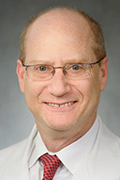 A team led by Barry Fuchs, medical director of the medical intensive care unit and respiratory care department and a professor of medicine in Penn’s Perelman School of Medicine, was named a Digital Edge 50 Award winner for the Awakening Breathing Coordination (ABC) Program. The multidisciplinary team included physicians, nurses, respiratory therapists, data scientists and software developers from the Critical Care Committee, Information Services, Penn Medicine Center for Healthcare Innovation and the Penn E-lert eICU. Using clinical decision support algorithms developed with help from the Center for Predictive Medicine, the ABC program is designed to allow patients to be weaned from sedation and mechanical ventilation at the earliest appropriate time through the display of real-time data on an electronic dashboard and by alerting clinicians through mobile devices. By removing patients from ventilators earlier so they can breathe on their own, care teams can shorten patients’ stay in the ICU, reduce the costs associated with their care, and improve patients’ overall experience, both physically and mentally. Presented by CIO magazine and the CIO Executive Council, Digital Edge 50 Awards recognize 50 organizations making “great strides toward being digital-centric businesses.” The winners will receive their awards at the AGENDA19 conference in Ponte Vedra Beach, Florida, in March.
A team led by Barry Fuchs, medical director of the medical intensive care unit and respiratory care department and a professor of medicine in Penn’s Perelman School of Medicine, was named a Digital Edge 50 Award winner for the Awakening Breathing Coordination (ABC) Program. The multidisciplinary team included physicians, nurses, respiratory therapists, data scientists and software developers from the Critical Care Committee, Information Services, Penn Medicine Center for Healthcare Innovation and the Penn E-lert eICU. Using clinical decision support algorithms developed with help from the Center for Predictive Medicine, the ABC program is designed to allow patients to be weaned from sedation and mechanical ventilation at the earliest appropriate time through the display of real-time data on an electronic dashboard and by alerting clinicians through mobile devices. By removing patients from ventilators earlier so they can breathe on their own, care teams can shorten patients’ stay in the ICU, reduce the costs associated with their care, and improve patients’ overall experience, both physically and mentally. Presented by CIO magazine and the CIO Executive Council, Digital Edge 50 Awards recognize 50 organizations making “great strides toward being digital-centric businesses.” The winners will receive their awards at the AGENDA19 conference in Ponte Vedra Beach, Florida, in March. Saar I. Gill, assistant professor of hematology-oncology at Penn’s Perelman School of Medicine and a member of the Abramson Cancer Center, received The Mark Foundation’s inaugural Emerging Leader Awards. Dr. Gill is one of eight recipients of the award, which includes a grant and recognizes promising early career scientists for projects aimed at improving cancer risk prediction, prevention, detection and treatment. Dr. Gill’s project is titled, “Commoditizing Adoptive Cell Therapy: Towards in Vivo CAR T-Cell Manufacturing.”
Saar I. Gill, assistant professor of hematology-oncology at Penn’s Perelman School of Medicine and a member of the Abramson Cancer Center, received The Mark Foundation’s inaugural Emerging Leader Awards. Dr. Gill is one of eight recipients of the award, which includes a grant and recognizes promising early career scientists for projects aimed at improving cancer risk prediction, prevention, detection and treatment. Dr. Gill’s project is titled, “Commoditizing Adoptive Cell Therapy: Towards in Vivo CAR T-Cell Manufacturing.”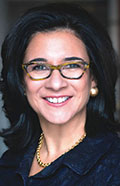 Maria A. Oquendo, chair of psychiatry in the Perelman School of Medicine, was awarded the 2018 Delores Shockley Minority Mentoring Award by the American College of Neuropsychopharmacology (ACNP). The award recognizes an ACNP member who has been successful in mentoring young scientists from underrepresented groups in the field of neuropsychopharmacology and related disciplines. Dr. Oquendo was honored for her passion and dedication to a diverse medical and academic workforce. The award was presented at the 57th Annual Meeting of the ACNP in Hollywood, Florida.
Maria A. Oquendo, chair of psychiatry in the Perelman School of Medicine, was awarded the 2018 Delores Shockley Minority Mentoring Award by the American College of Neuropsychopharmacology (ACNP). The award recognizes an ACNP member who has been successful in mentoring young scientists from underrepresented groups in the field of neuropsychopharmacology and related disciplines. Dr. Oquendo was honored for her passion and dedication to a diverse medical and academic workforce. The award was presented at the 57th Annual Meeting of the ACNP in Hollywood, Florida. Mark Yim, professor in the department of mechanical engineering and applied mechanics in SEAS, has been named a 2018 National Academy of Inventors Fellow for “demonstrating a highly prolific spirit of innovation in creating or facilitating outstanding inventions that have made a tangible impact on the quality of life, economic development and welfare of society.”
Mark Yim, professor in the department of mechanical engineering and applied mechanics in SEAS, has been named a 2018 National Academy of Inventors Fellow for “demonstrating a highly prolific spirit of innovation in creating or facilitating outstanding inventions that have made a tangible impact on the quality of life, economic development and welfare of society.” Penn President Amy Gutmann described herself at the Icon Award ceremony as “a moral and political philosopher and an educator, by passion as well as by profession. I have devoted my life’s work to better understanding—and strengthening—the groundwork for both American democracy and education. For any democracy to survive and flourish, no single principle is more fundamental than the free and robust exchange of ideas—especially when we disagree.”
Penn President Amy Gutmann described herself at the Icon Award ceremony as “a moral and political philosopher and an educator, by passion as well as by profession. I have devoted my life’s work to better understanding—and strengthening—the groundwork for both American democracy and education. For any democracy to survive and flourish, no single principle is more fundamental than the free and robust exchange of ideas—especially when we disagree.” Franklin’s birthday has been celebrated on January 17 for centuries, but he was actually born in Boston on January 6, 1705, before the colonies switched from the Julian calendar to the Gregorian calendar in 1752. Under the Julian system the new year began March 25 not January 1 so anyone born during those months also had to change the year of their birth. He supported the change and dutifully moved his birthday up the 11 days. So his Gregorian year of birth became 1706 instead of 1705. Franklin moved to Philadelphia at the age of 17 and prospered as an entrepreneur and newspaperman.
Franklin’s birthday has been celebrated on January 17 for centuries, but he was actually born in Boston on January 6, 1705, before the colonies switched from the Julian calendar to the Gregorian calendar in 1752. Under the Julian system the new year began March 25 not January 1 so anyone born during those months also had to change the year of their birth. He supported the change and dutifully moved his birthday up the 11 days. So his Gregorian year of birth became 1706 instead of 1705. Franklin moved to Philadelphia at the age of 17 and prospered as an entrepreneur and newspaperman. .jpg)



 Penn will celebrate and honor the life and legacy of Martin Luther King Jr. during the 24th annual Commemorative Symposium on Social Change, January 17 through February 1.
Penn will celebrate and honor the life and legacy of Martin Luther King Jr. during the 24th annual Commemorative Symposium on Social Change, January 17 through February 1. 